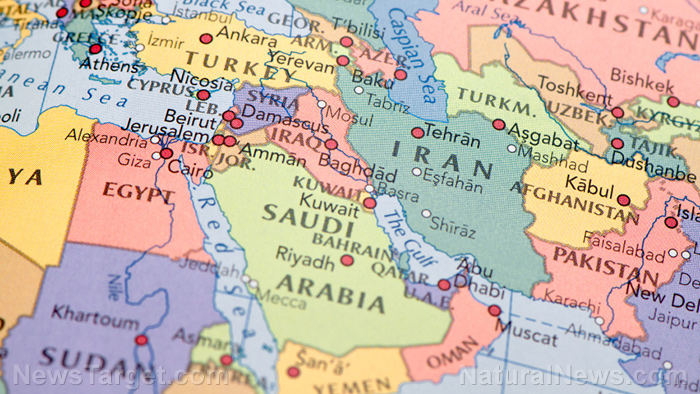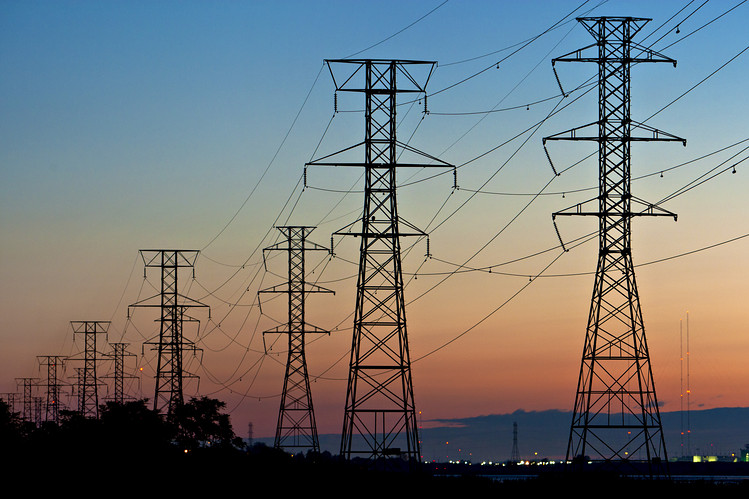Over 1,300 flights cancelled and 6,000 delayed by SEVERE THUNDERSTORMS that hit the East Coast
08/11/2023 / By Laura Harris

More than 1,350 international and domestic flights had been canceled and another 6,000 flights were delayed by 6 p.m. Eastern Time on Monday, Aug. 7, as severe thunderstorms paralyzed the Eastern Seaboard. The disruptions continued through the night, and the thunderstorms knocked out power for more than a million people.
The National Weather Service (NWS) issued five “tornado watch” and two “severe thunderstorm watch” warnings, signaling the dangerous conditions that were on the horizon. The storm system, which had struck the Ohio River Valley last week, already advanced eastward, threatening areas east of the Mississippi River with high winds, large hail, and even the possibility of tornadoes.
Moreover, the mid-Atlantic region, enclosing southern Pennsylvania, New Jersey, Baltimore, New York and Washington, DC, was identified as particularly vulnerable to the storm’s wrath. The area from northern Alabama to southern New York, including Atlanta and Charlotte, was placed under an enhanced risk for severe weather. The NWS issued a warning for severe thunderstorms, flash flooding, and potential tornadoes in these areas.
Throughout the afternoon, airports around the Eastern Seaboard, including major travel hubs in Atlanta, Philadelphia, Charlotte, JFK and Newark declared ground stops as powerful storms battered the region. But at night, the center of the storm had moved above Philadelphia. Thus, most of the restrictions would gradually ease as airports begin resuming normal operations. (Related: First time since 9/11: All flights in US grounded at the same time due to FAA system outage.)
As the storm pounded the Eastern Seaboard, New York City residents were issued thunderstorms and heavy rain warnings. Notify NYC, the city’s official emergency notification account, urged citizens to take precautions against the impending deluge, including seeking higher ground during heavy rainfall and advising against unnecessary travel.
Extreme thunderstorms left East Coast with heavy damage
On August 7, a series of powerful and destructive storms across the East Coast resulted in tragic fatalities, widespread power outages and significant disruptions to travel and daily life.
The NWS issued severe thunderstorms and tornado watches that spanned across several states, including Alabama, Georgia, New Jersey, North Carolina, Pennsylvania, South Carolina, Tennessee and West Virginia.
As of the latest reports from ABC News, two people have died and over 630,000 residents experienced power shortages. North Carolina, one of the hardest-hit states has more than 227,000 residents left without electricity. Pennsylvania also suffered a significant blow with approximately 149,000 residents in the dark.
Meanwhile, in Florence, Alabama, a 28-year-old man lost his life after being struck by lightning in a parking lot of an industrial park. In a separate incident in Anderson County of Southern Carolina, a 15-year-old died when a falling tree struck him. Moreover, thousands of flights in Atlanta, New York, Baltimore, Washington, D.C., and Boston were delayed due to bad weather.
The NWS documented more than 300 instances of damaging storm reports, including 10 reported tornadoes. The states of Iowa, Illinois, Nebraska, and Colorado were hit hardest, with notable storm damage observed in Wichita, Kansas, central Illinois, and Birmingham, Alabama.
Torrential rain triggered flash flooding in parts of northeastern Missouri, including the town of Kahoka, where over six inches of rain fell in just six hours. In Colorado and Kansas, golf ball-sized hail further added to the destructive forces unleashed by these tumultuous weather patterns.
Learn more about natural disasters affecting the United States at Disaster.news.
Watch the podcast below that talks about the deadly ice storm in Texas that caused power outages and canceled flights.
This video is from the Evolutionary Energy Arts channel on Brighteon.com.
More related stories:
Weather forecasters: El Niño is coming this summer and will likely stretch into winter.
Thousands of flights canceled and delayed as massive winter storm engulfs America.
Sources include:
Submit a correction >>
Tagged Under:
airline industry, airlines, aviation, big government, chaos, climate, collapse, dangerous, East Coast, ecology, electricity, environment, extreme weather, flights, national security, National Weather Service, natural disasters, panic, power, power grid, SHTF, system outage, thunderstorms, tornadoes, transportation, weather terrorism
This article may contain statements that reflect the opinion of the author
RECENT NEWS & ARTICLES
COPYRIGHT © 2022 EnergySupply.news
All content posted on this site is protected under Free Speech. EnergySupply.news is not responsible for content written by contributing authors. The information on this site is provided for educational and entertainment purposes only. It is not intended as a substitute for professional advice of any kind. EnergySupply.news assumes no responsibility for the use or misuse of this material. All trademarks, registered trademarks and service marks mentioned on this site are the property of their respective owners.



















